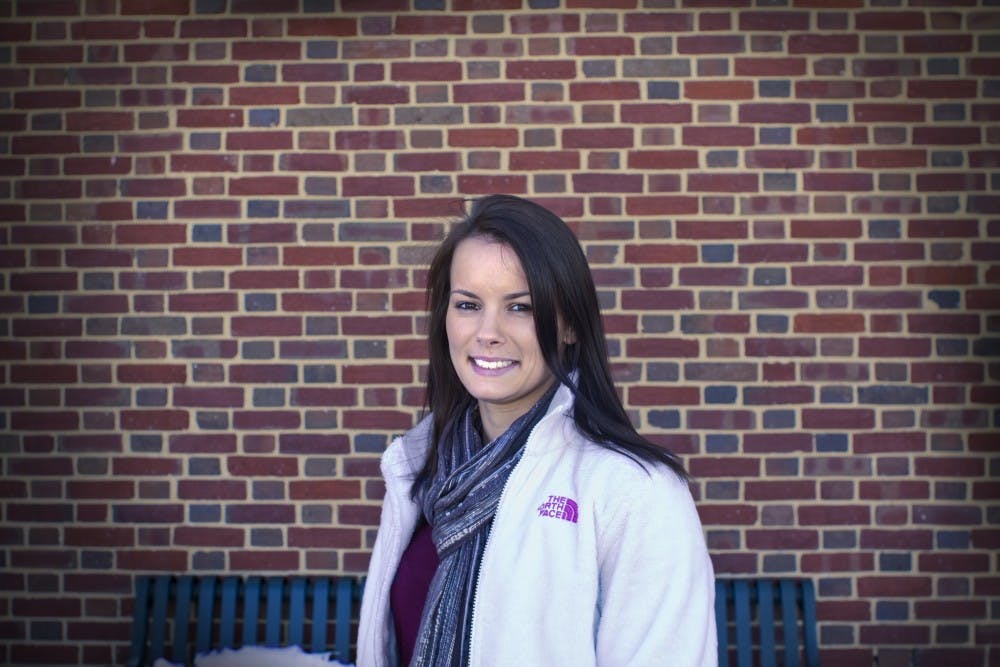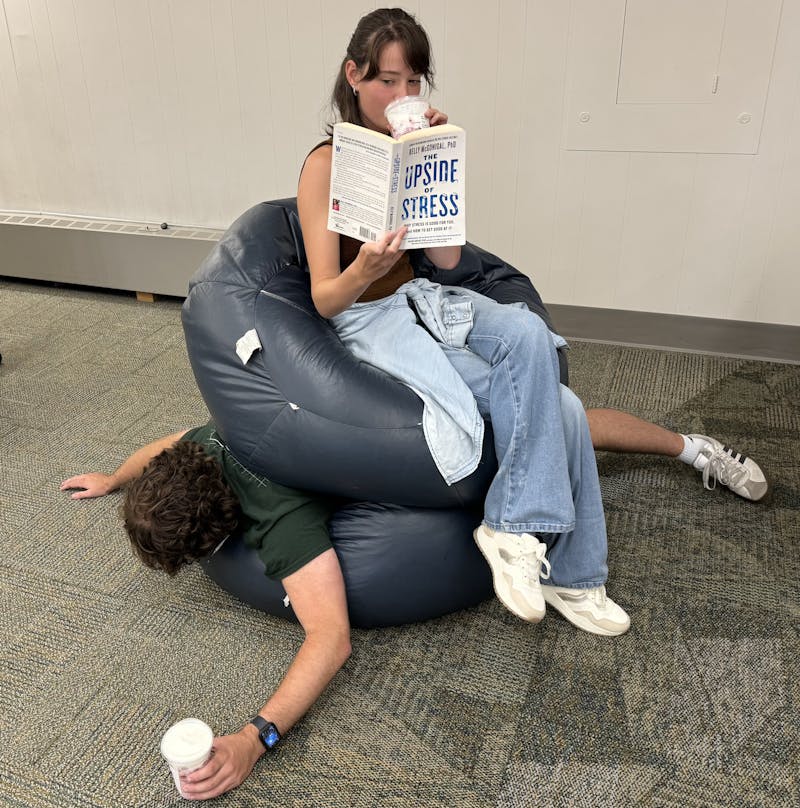She searches for a trace of approval in his eyes as she presents the operation order she has been preparing since 6:15 a.m. to her superior.
Cadet Rosey Tuttle is poised, serious and confident as she explains to Sgt. 1st Class David Marino where the team leader is to be located, the orders she will give the soldiers and the actions she would take if there was enemy fire.
The basement of Wright Hall at Shippensburg University looks like a camouflage tornado blasted through, covering backpacks, helmets, handbooks and canteens. The bright yellow and jet-black colors of the Raider Battalion invade the walls with a banner that reads “Army Officer. Inspiring Strength In Others.”
Ribbons hang with pride of the Reserve Officers’ Training Corps’ accomplishments. Tuttle explained what it means to her to be in ROTC.
“You’re always in the role of being a leader,” Tuttle said. “No matter what, they’re looking at you.”
The op-order Tuttle has briefed is a scenario of a mission that would place her in command. If things went wayward in the real world, it would be her responsibility for possible losses to her soldiers.
This is why Marino describes to the cadets in military science class what Tuttle did right and what she did wrong. It teaches her to be a leader — and she handles the criticism with composure.
Cadets are often seen on campus making their way to classes like the rest of the student population. The difference is they wake up at 5 a.m. everyday, sweat and push themselves in physical training, and feel the constant pressure to satisfy the cadre at any moment.
“Being able to go to college and serve in the military at the same time is the best of both worlds,” Tuttle said.
Cadets must promise four to eight years of their lives in service to the military once they are juniors like Tuttle. Then, in advanced field training courses they learn to fire rifles, take rides in helicopters, and climb, crawl and swim their way through obstacle courses.
The physical routine of an ROTC cadet is similar to an athlete’s. “It is exhausting,” Tuttle said, “but I’ve been an athlete my whole life.”
Tuttle has plans to get her master’s degree and join the medical branch of the National Guard after graduation. What is the greatest reward for Tuttle in all of this, if it is not simply survival?
It is a promise that she is learning how to become someone that others will respect and look up to throughout her lifetime.




The Slate welcomes thoughtful discussion on all of our stories, but please keep comments civil and on-topic. Read our full guidelines here.